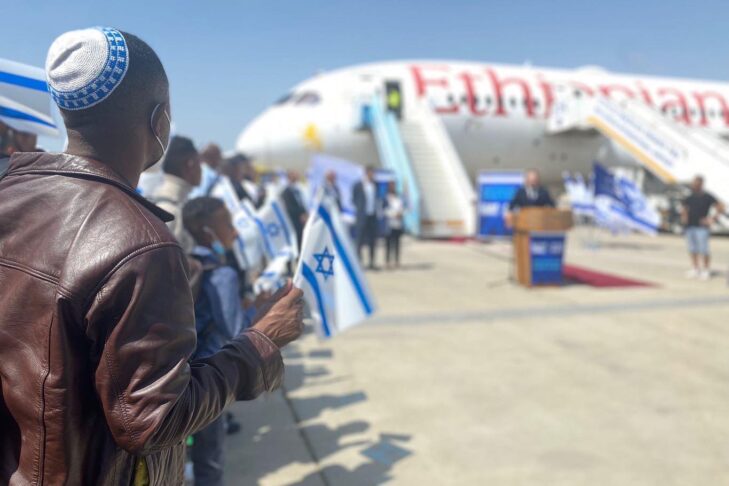My name is Esther and I was born and raised in Ethiopia. My family and I lived in an area where Jews were not welcomed, so most of the time we had to hide our Jewishness and live in constant fear. But what kept us going was the knowledge that one day we would immigrate to Israel. Even though it was hard for us there, even though we were bullied, we knew that one day we would immigrate to the Holy Land and it would end our problems and fear. The name “Jerusalem” would come up at almost every family meal.
Indeed, our family immigrated to Israel when I was 12 years old. Our immigration story wasn’t simple, either; we had to hide during the days and walk at night with sacks of food on our backs. There was a lot of fear along the way. We faced threats from robbers and walked for miles in unfamiliar places, but we knew we were approaching the Holy Land; we knew someone was watching over us.
Upon our arrival in Israel, we established ourselves in the city of Ashkelon, because other family members who had immigrated to Israel before us had already settled in the city. At the age of 19, I got married, and with my husband, we moved to Haifa. My mother, brothers and sisters stayed to live in Ashkelon, Ashdod and Beersheba, cities that are currently under fire. It’s hard for my mother to evacuate because of her age, and my brothers and sisters, who live in Ashkelon or nearby cities, don’t leave so that most of the family can stay close to each other, and help my mother when necessary.
Our family lives in constant fear during the war—on the one hand, we cling to the belief that nothing will happen to us, but on the other hand, the family members who live in the south feel firsthand the terror of sirens and missile falls, and all this, of course, has a terrible affect on them.
My sister lives in Ashdod and a missile fell in her neighborhood, making it difficult for her to manage the house and causing constant concern for her children and grandchildren. Israel currently has no economic solution to evict the family, so they are simply forced to stay at home and hold on to hope.
I have three children. One of my sons lives in Yavne and came with his family to Haifa at the beginning of the war but returned to Yavne when sirens sounded in the north as well. They preferred their home because, as far as they were concerned, there is currently no safe place in the country. My daughter lives in Tel Aviv; her husband was drafted into the war and is near the northern border. My youngest son, 21, finished his army service and was discharged from the military eight months ago. He began working and developing a career, but when the war broke out, he was drafted back into the army.
My husband is a civilian IDF worker, and he, too, is currently on alert. And in the midst of it all, I stay home alone, trying to grow stronger through the belief that everyone will be okay, and through the thought that I am now guarding the house for the whole family.
In the week after the outbreak of the war, my friend and I started a social fundraising project in Haifa—we collected equipment, food and preparations, and raised money for the soldiers. This activity created an intergenerational encounter of young people, youth and adults, each contributing according to his or her abilities.
The group of women (Ethiopian immigrants) that I founded about 18 years ago has now joined the war effort and prepared injira (a traditional Ethiopian dish) for the soldiers in order to warm their hearts and stomachs and give them a bit of a sense of home.
The situation now is not simple, and the feelings are difficult. We fled Ethiopia because we didn’t feel safe because we were Jews, and now it’s happening here. But even though something in our confidence has been damaged, I look around and know that this is our place, that it will be okay.
Esther Yevarkan is a participant in the “Shagrirot” (ambassadors) program of CJP’s Boston-Haifa Connection Shared Society Committee. Shagrirot is a platform where Ethiopian Israeli women leaders serve as role models in their communities for youth.


